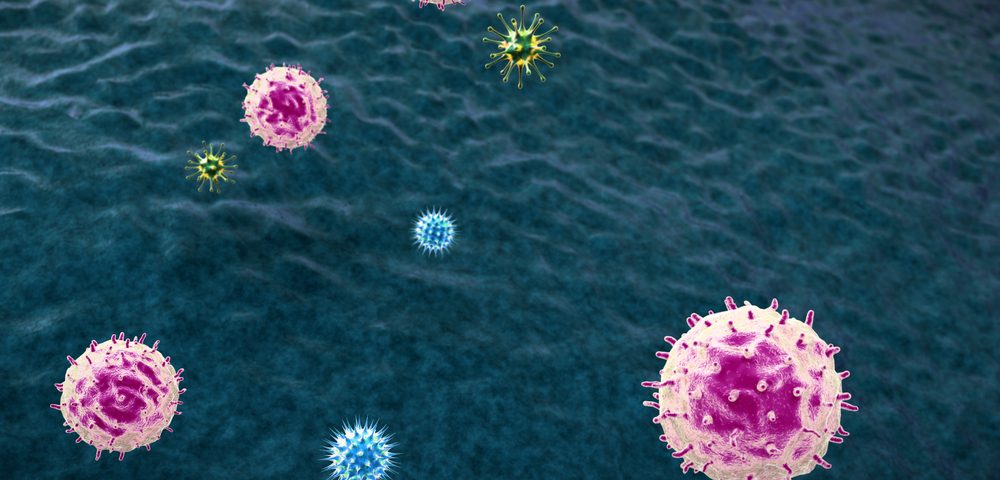Genentech reported positive interim data from a Phase 3 clinical trial in people with previously untreated follicular lymphoma, the most common type of slow-growing non-Hodgkin’s lymphoma. The study is examining the safety and efficacy of Gazyva (obinutuzumab) plus chemotherapy, as compared to Rituxan (rituximab) plus chemotherapy, followed by either drug as monotherapy for up to two years.
Data demonstrated that Gazyva treatment reduced the risk of disease progression or death (known as progression-free survival, or PFS) compared to treatment with Rituxan, the company reported. The potentially pivotal clinical trial, known as GALLIUM (NCT01332968), is a global, open-label and randomized, two-arm study in 1,401 patients with previously untreated indolent non-Hodgkin’s lymphoma, including 1,202 people with follicular lymphoma. The chemotherapy treatments used were CHOP, CVP, or bendamustine.
Observed adverse events in patients in both treatment arms were coherent with those reported in prior clinical studies in which Gazyvaa or Rituxan were combined with other chemotherapy agents. Results from the trial, which is expected to conclude in March 2017, will be presented at future scientific conferences and submitted to health authorities for review.
“People with follicular lymphoma continue to need better initial treatment options because their disease is incurable and becomes more difficult to treat with each relapse,” Sandra Horning, MD, chief medical officer and head of Global Product Development at Genentech, said in a recent press release. “GALLIUM is the second study in which Gazyva showed superior progression-free survival compared to Rituxan, when each was combined with chemotherapy.”
In the CLL11 Phase 3 clinical trial, the first head-to-head comparison of Gazyva and Rituxan conducted in patients with previously untreated chronic lymphocytic leukemia, the combination of Gazyva and chlorambucil was found to extend PFS in comparison to Rituxan and chlorambucil (median PFS of 26.7 months vs. 14.9 months, respectively). The most commonly observed adverse events of Gazyva and chlorambucil treatment in this study were low white blood cell counts, fever, nausea, cough, low red blood cell counts, infusion reactions, low platelet counts, and diarrhea.


